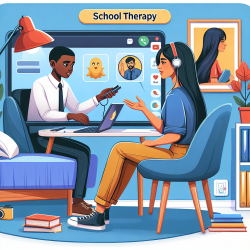Introduction
In recent years, the intersection of stress, coping, and health behaviors has gained attention, particularly among African American adolescents who face disproportionately higher rates of overweight and obesity. The study titled A Qualitative Study of Stress and Coping to Inform the LEADS Health Promotion Trial for African American Adolescents with Overweight and Obesity provides valuable insights into these challenges. By understanding these dynamics, practitioners can enhance health promotion programs to better support this demographic.
Understanding Stress and Coping
The study utilized in-depth interviews with 30 African American adolescents and their families to explore stressors and coping strategies. Key findings revealed that stress often stems from relationship conflicts, school pressures, and negative emotions. Adolescents frequently resorted to avoidant coping strategies, such as cognitive distancing, which can exacerbate stress and hinder healthy behavior changes.
Implications for Health Promotion Programs
Integrating stress management into health promotion programs is crucial. Here are some strategies practitioners can consider:
- Cognitive Reframing: Encourage adolescents to reframe stressors positively, fostering proactive coping mechanisms.
- Family Involvement: Promote family-based interventions that emphasize positive communication and emotional support.
- Community Resources: Develop community centers that offer stress management resources, physical activity opportunities, and nutritional education.
Recommendations for Practitioners
Practitioners should focus on building adaptive coping strategies and family resilience. Programs should be culturally tailored to address unique stressors faced by African American families, such as racial discrimination and community violence. Additionally, incorporating behavioral skills training can enhance self-efficacy and promote sustainable health behavior changes.
Conclusion
This research underscores the importance of integrating stress management into health promotion efforts for African American adolescents. By addressing stressors and fostering effective coping strategies, practitioners can significantly improve health outcomes. For a comprehensive understanding, practitioners are encouraged to delve deeper into the original research.
To read the original research paper, please follow this link: A Qualitative Study of Stress and Coping to Inform the LEADS Health Promotion Trial for African American Adolescents with Overweight and Obesity.










